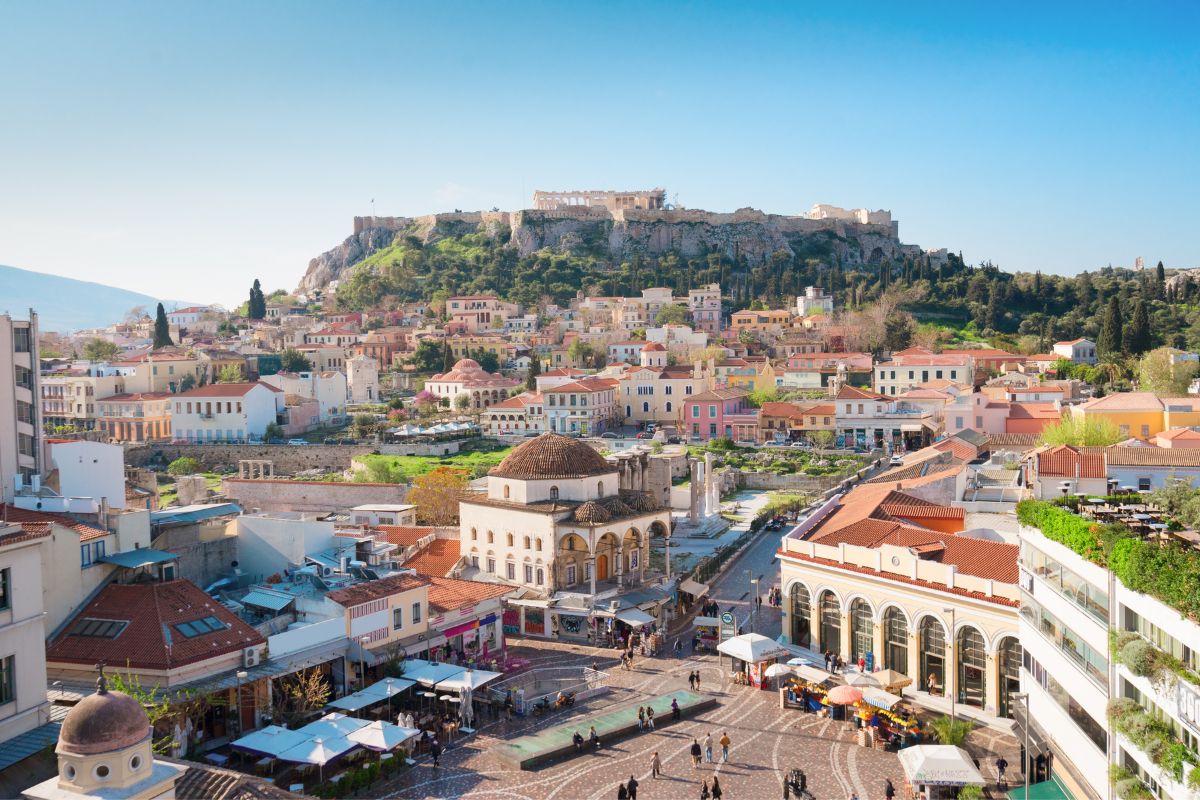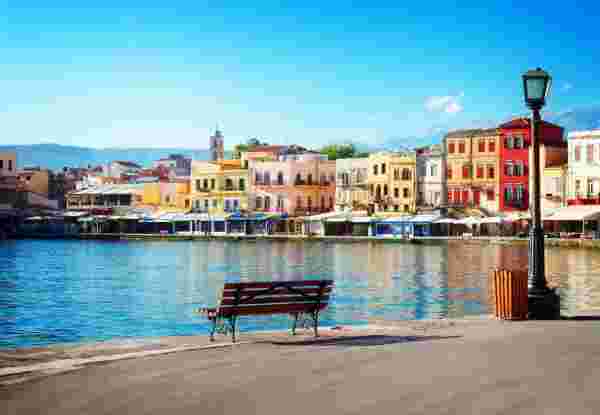What’s the worst time to visit Greece

Greece is a lovely place. It has a rich history and stunning views. If you want to plan a great trip, it’s key to know when is the best and worst time to visit Greece. In this guide, we will focus on the worst times to go to Greece. We will look at the weather and the large crowds. By knowing when it is busy or calm during the year, you can make your trip better. Let’s explore what makes sometimes not so good to visit this beautiful Mediterranean country.
What’s the worst time to visit Greece weather-wise
Greece has a different type of weather all year long. This makes it very important for travelers to plan their trips well. The winter season, from December to February, is cold and often rainy. These conditions can make it hard to do outdoor activities. In contrast, the summer months of July and August are very hot, especially near the coast. This heat can make it uncomfortable to visit historical sites or enjoy outdoor activities during this time.
To make your trip to Greece better, try to avoid going during extreme weather. Plan your visit in spring or autumn. Greece in spring and Greece in fall have milder temperatures and good weather. This is great for seeing sights, having outdoor fun, and exploring the culture of this beautiful country. By choosing the right time to visit Greece, you can enjoy your journey more and create lasting memories in its lovely landscapes and historic sites.
Breaking down the winter months

December marks the start of winter in Greece. The temperatures drop, especially in the hilly areas. The cold continues into January, and February is usually the coldest month in the country. Winter often brings rain, which can affect outdoor activities. Tourists looking for warm weather may not find this season perfect, as average temperatures stay around 50 degrees Fahrenheit. Even with the chill, a winter trip to Greece can still be enjoyable. You can explore its rich history at different archaeological sites and taste delicious Greek food. If you visit ancient ruins or enjoy local dishes, there is a lot to admire during winter in Greece.
- December
December marks the start of winter in Greece. It is not as cold as other European countries, but the weather in December can definitely feel cooler. The average temperatures are around 55 degrees Fahrenheit. This makes it one of the coldest times of the year. Some tourist spots may have shorter hours, and coastal areas can be windy and chilly. Still, if you prefer fewer tourists and are on a tight budget, visiting Greece in December is a good choice. You can explore Greece’s historical sites while wearing a light jacket, plus you get to experience Christmas in Greece!
- January
In January, Greece is at its coldest time. Average temperatures can go from 10 to 57 degrees Fahrenheit, especially in the hilly areas. Coastal places have milder winters but can still feel cold. Even if the weather in January is chilly, January can still be a good time to visit. You may see fewer tourists and enjoy calm surroundings. However, this also means there are fewer tourist services. Some sights may not open as often, however the festive season is still evident especially on January 6th where you will witness the celebration of the Epiphany in Greece. Overall, January is the low season in Greece. It is great for travelers who want to explore quietly.
- February
February in Greece marks the end of winter. The weather in February gradually becomes nicer, and there are fewer tourists around. It may still feel a little cold, but it’s a good time to explore historical sites and old ruins without the summer heat. The coastal areas begin to feel lively, making it a lovely spot to visit if you enjoy a calm setting. The Greek islands in February might not all be ready to welcome travelers, but there are a selected few that are an excellent option to visit. With lower prices and nicer weather compared to the hot summer months, February is a great option for a trip to Greece.
Breaking down the worst summer months

Photo of mother and her kids, enjoying together at the beach
Visiting Greece in July and August can be hard because of the hot weather, often over 90 degrees Fahrenheit. The heat can make it tough to see the sights. As August comes, the weather gets even hotter and more tourists arrive. This causes crowded places at popular sites. These issues can take away from the fun of visiting the amazing Greek islands and ancient historical sites.
To make your trip better and avoid problems during peak season, think about going in the shoulder seasons. Visiting in spring or fall has nicer weather for outdoor fun, island hopping sightseeing. During these times, you can enjoy Greece’s beauty without the heat and large crowds. This will help you have a relaxing and enjoyable travel experience.
- July
July in Greece can get really hot. Temperatures often go above 30 degrees Celsius. This summer month feel intense, especially in beach areas and the Greek islands. This is when many tourists visit. You will see crowded sights and few places to stay. If you want to avoid crowds and enjoy cool weather, July might not be the best time for you to go. But, this is okay if you like the summer heat, party islands, and romantic islands.
- August
August in Greece can be difficult due to the strong heat. It is one of the least popular months to visit. The hottest summer months attract many people. This usually means crowded tourist spots and limited places to stay. With temperatures often above 90 degrees Fahrenheit, exploring outdoor attractions can feel tough. However, if you can deal with the heat and the crowds, you can still enjoy the beautiful coastline and delicious Greek food that August has to offer. Also, you will be part of the August 15th traditions that happen all over Greece.
Worst time to visit Greece Crowd Wise

Accessing activities and places to stay in Greece can be tough during the summer. July and August are the busiest months. Many people visit during this time. This can make it hard for you to enjoy your visit. The Greek islands may feel very crowded. This can take away from your fun and relaxation. There might not be enough places to stay, and prices may increase. To have a quieter trip with fewer tourists, think about visiting during the shoulder seasons or the low season. This way, you can enjoy a quieter and cheaper visit to this beautiful Mediterranean location.
Access to activities
Exploring Greece during the off-peak seasons gives you more opportunities for fun activities. There are fewer tourists, so you can see the historical sites and old ruins without big crowds. The nice weather is perfect for outdoor fun. You can hike in the hills or relax on the unique Greek beaches. Tourist spots are not as busy, which helps you feel calm. This makes it easier to enjoy the beauty and history of Greece. Consider going during these quieter months for a more real Greek experience.
Accommodation issues
Finding a place to stay in Greece during the busy summer season can be difficult. Many tourists visit at this time, which means good rooms are hard to find. Hotels may be full, and prices could be very high. This situation makes it stressful to find a place that is cheap and easy to get to. You might have to take whatever you can get, even if it is not what you really want. To avoid this, try to plan ahead and look for different types of places to stay. Booking early can help you save money and make your trip easier.
Other reasons
Going to Greece for a honeymoon at a bad time could make your trip less enjoyable. In September, the weather can change a lot, which may affect your fun. Athens might not be at its best during some moments, making it tough to enjoy the historical sites and stunning views. Choosing the right time to visit Greece can make your trip much better. This way, you can avoid problems and enjoy everything this beautiful place has to offer.
Worst time to visit greece for honeymoon

Planning a honeymoon in Greece? Avoid the busy summer months. If you want a calm and romantic trip, the summer heat and crowds can ruin your special time. Consider going during the shoulder seasons. You will find fewer people and lower prices then. This helps you have a relaxed and budget-friendly experience. Late spring or early fall brings nice weather. This is great for exploring the beautiful unexplored Greek islands and historical sites. You can enjoy your honeymoon without the rush of peak tourist season. Pick the right time to visit Greece to make your trip enjoyable and easy.
Worst time to visit greece in september?

September in Greece is a month that changes the seasons. The weather can be hard to predict. You might still see summer crowds, but there’s also a chance of rain. The cooler weather may attract some visitors. However, some attractions might be closed after the busy season. It is a good idea to pack for different weather and to be ready for fewer choices than during the main tourist time. Also, the Greek islands in September are more enjoyable and calmer. You may find lower prices and fewer people at popular spots.
When not to visit Athens?

Athens is the capital of Greece. It’s a busy city full of rich history and lively culture. Many tourists visit it all year long. However, some times are better to go than others. August is seen as the worst month to visit Athens. There are several reasons for this.
During August, Athens has very high temperatures. The heat often rises to uncomfortable levels. A mix of high heat and humidity can make it hard to check out the city’s outdoor attractions. Also, August is the busiest month for tourists in Athens. This means that well-known spots like the Acropolis and Plaka neighborhood can be jam-packed with visitors from all over the globe.
Many people in Athens like to take their vacations in August. Because of this, some businesses and restaurants might be closed or have shorter hours. This makes the city feel quieter and calmer than at other times.
If you want a more relaxed and real experience in Athens, it is better to visit during the shoulder seasons like spring (April-May) or fall (September-October). During these times, the weather is nicer, there are fewer crowds, and you can enjoy the local culture without being overwhelmed by tourists. Read our ultimate Athens travel guide to get more insider tips!
When is the best time to visit Greece

Late spring and early fall are the best time to visit Greece. These seasons have nice weather and fewer crowds than the busy summer months. You can explore outside and see historical sites without the hot summer sun. Traveling during these times can also mean lower prices and a more relaxed feel. There are good deals to enjoy while experiencing nice weather with fewer tourists. If you want to see Greece’s rich history or enjoy its beautiful nature, visiting in late spring or early fall can create the perfect setting for a memorable trip.
Final Thoughts
Greece has many things to enjoy all year long. This makes it a great place for any kind of traveler. Knowing the special things about each season can help you enjoy your visit even more. Some months may not be the best due to weather or big crowds, but you can still make your trip special. If you plan well and think about what matters to you, you can have a great time in this beautiful country.
Feeling Ready?
From our blog

How to Enjoy Santorini for Seniors
READ MORE
Honeymoon in Paros Island
READ MORE
Rome Travel Guide: What to Do, When to go and Where to Go
READ MORE
The Best Greek Islands for Couples, According to a Luxury DMC
READ MORE
Discover Milan: Top Attractions
READ MORE
Athens in February Travel Guide
READ MORE
When Is Easter 2026? Dates from 2026 to 2030
READ MORE
Crete 2025 Travel Guide
READ MORE
How Many Days in Mykonos
READ MORE



